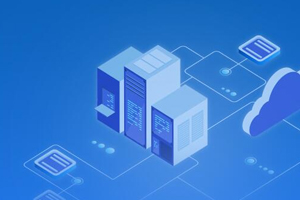Cloud storage solves the problem of this potential hardware damage by copying the files and different servers. Cloud storage knows the location of the file store. When the hardware is damaged, the system will automatically guide the read and write instructions to the files on another storage server to keep the service continuing.
Provide capacity expansion in time
Capacity restrictions-traditional storage uses serial expansion, no matter how much it connected to the expansion box, there is always a limit. The architecture adopted by the cloud storage is parallel to expand the capacity, and the capacity is not enough. As long as you purchase a new storage server, the capacity increases immediately, and it is almost unlimited. This is another benefit
Massive parallel expansion
Traditional storage is based on physical volumes. If the application side needs to read several storage at the same time, each storage must be mount to the application. difficult. Cloud storage provides a unified name, allowing the application to use this name to access the data of the entire storage pool, which is very convenient for application development.
Unified foreign name
Excessive workload-When there are several storage devices, it is inevitable that there will be uneven workload distribution. Some storage is not used, and some will be excessively loaded, which will cause the bottleneck of overall storage efficiency. Cloud storage will evenly distribute the workload to different storage servers to avoid the excessive workload of individual storage servers, so that the storage system can maximize the performance.
Load balancing
Management of cloud storage management is very complicated. Different storage manufacturers have different management interfaces. Data center personnel often need to face different storage products. In this case, understand the use status (capacity, load, etc.) of each storage. It is very complicated. For cloud storage, even more storage servers, in the eyes of managers, are just a storage. As long as the overall hard disk capacity is used, the purchase server can be purchased. See on a management interface.
Easy management
Traditional storage requirements for hard disks are almost harsh, and they must be the same as the brand, the same capacity, and the same model, otherwise the system operation will be easy to have problems. In the rapid changes in the IT industry, after the system is used for 2 to 3 years, the hard disk is damaged, and the same type of hard disk replacement cannot be found. There is no such problem using cloud storage. The design principle of cloud storage has no requirements for the consistency of the hard disk. Different media, capacity, label, and model hard disk can work together. This can protect users' previous hardware investment and will not waste.
Hardware redundant
Automatic fault switch
When the traditional storage system is upgraded, the traditional storage system is upgraded, and the old storage equipment file needs to be backed up, and it needs to be stopped and replaced with a new storage device, which will cause the service to stop. Cloud storage does not rely on a storage server alone. Therefore, the update and upgrade of the storage server hardware will not affect the provision of the storage service. After launch, the file will be moved back. This is the third benefit

The storage device upgrade will not cause service interruption
Traditional storage system data growth judgment errors-When adding a new service project, sometimes the data growth judgment is wrong, which will cause waste of early procurement. The expansion of cloud storage is very simple, and the storage capacity assigned to each project can exceed the actual storage capacity. For example, the total hard disk capacity is only 100TB, but the system can set the capacity of 200TB or even 300TB for the project. Just purchase the server. This is particularly beneficial to the storage service provider. There are three benefits to do this.

 EN
EN
 CN
CN








